Published on: 03-Sep 07:57am
Step 1: Setting Up Teams
The first step is to access the Teams app. We are going to use the desktop app for this user guide, the steps are similar when using the other Teams apps.
The Teams interface has three main sections, which are the App bar, Command bar, and display section. When you click or tap, or type something on the App bar or Command bar, you get the results of your activity on the display section.
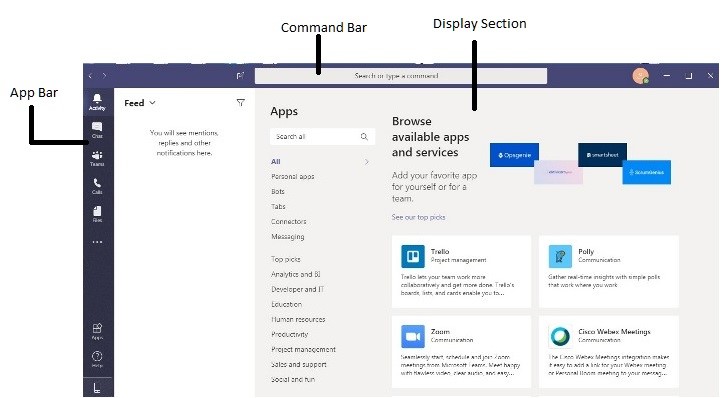
The App bar, which is located on the left of the Teams app, has the most menu icons, which you will be using to access Teams’ features. Starting from the top, this is what to expect.
Activity - Use the Activity icon to access replies, see mentions, and other important notifications.
Chat - The Chat allows you to view the one-on-one or group chats, as well as your contrast list. You can also use it to start a chat with your contacts or groups.
Teams - Next is the Team icon, which you can click to view teams in which you are listed as a member. You can also use it to create a team (channel), add people to your teams.
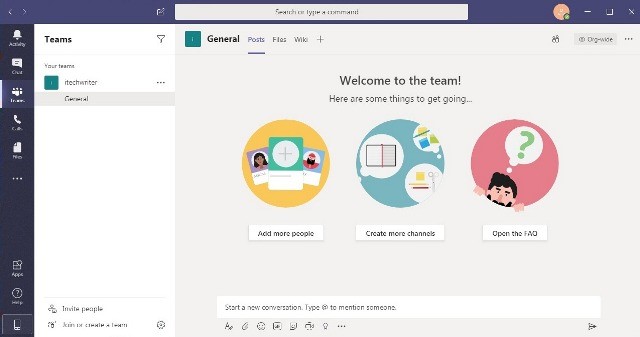
Meetings - You can view all your upcoming meetings by clicking on it, and it syncs with your Outlook calendar. So, it will list any meeting on Outlook as well.
Calls - The Calls icon allows you to access your contacts, view call history, add or call through speed dial, and listen to your voicemail.
Files - With files, you can view all your Teams’ files from one location, and it also connects you to other storage spaces such as your Business or personal OneDrive, as well as your local Downloads folder.
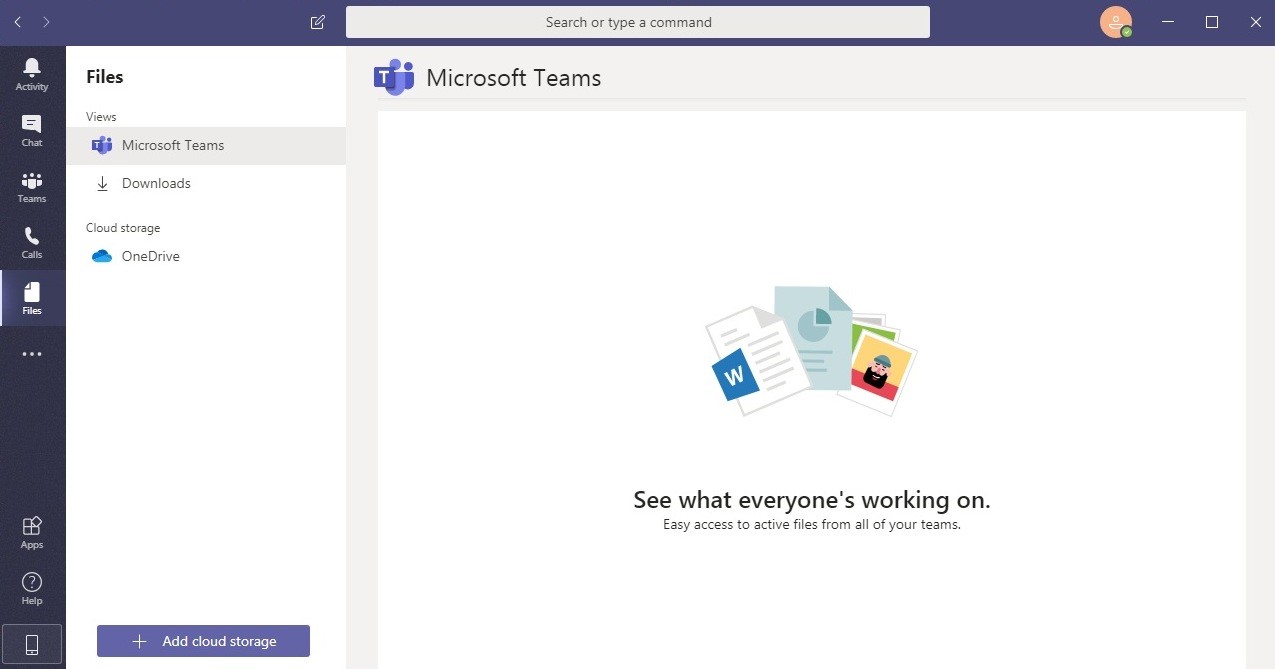
Apps - If you click on apps, you will get a list of apps that you can add for yourself or your team.
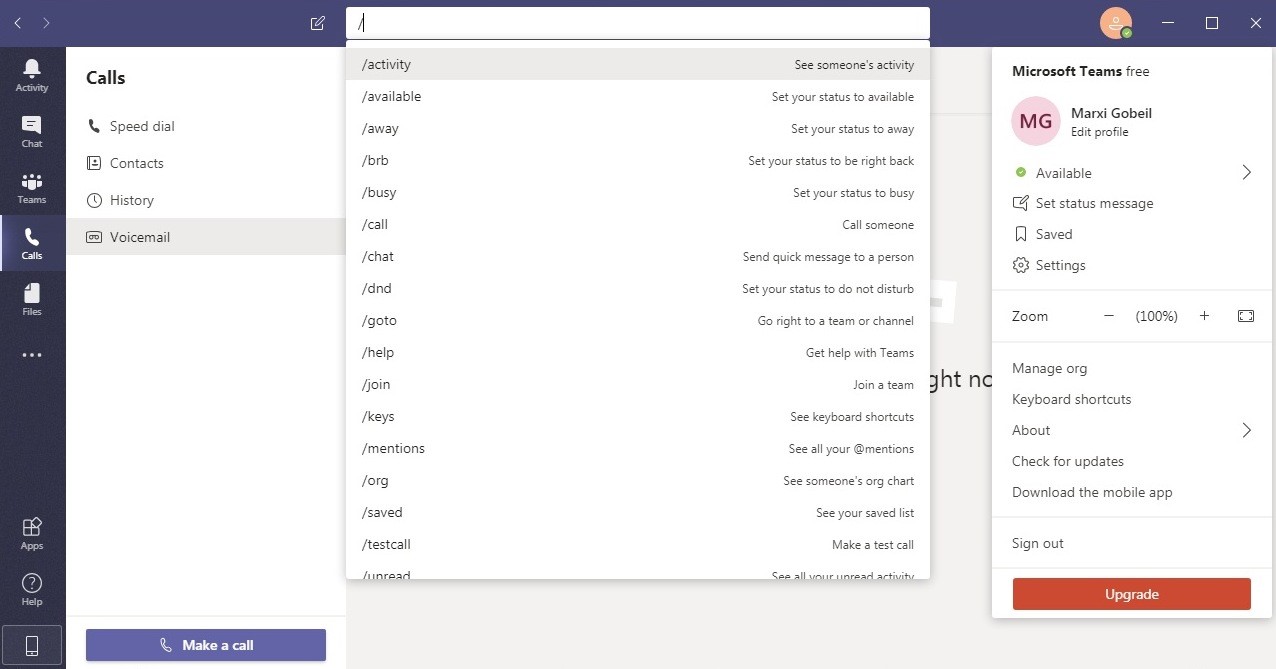
The command bar is the next important feature on Teams. It allows you to type various commands using either “/” or “@”, to list and execute them. Just type “/” or “@”, then scroll down to the command you want to use, and press enter or tap.
You can also manage your Teams app or account by clicking on the profile icon, which is located on the top right. Use it to edit your profile, change app settings, and other Teams app management tasks.
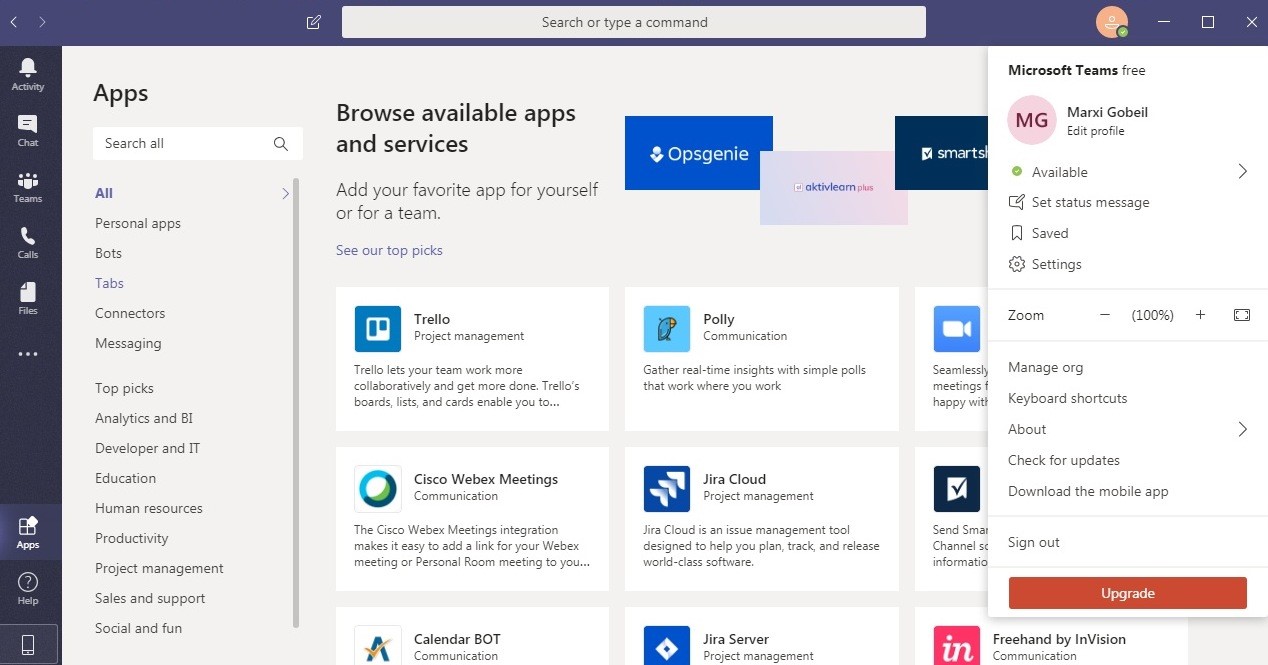
Looking for anything specific article which resides in general queries? Just browse the various relevant folders and categories and then you will find the desired article.